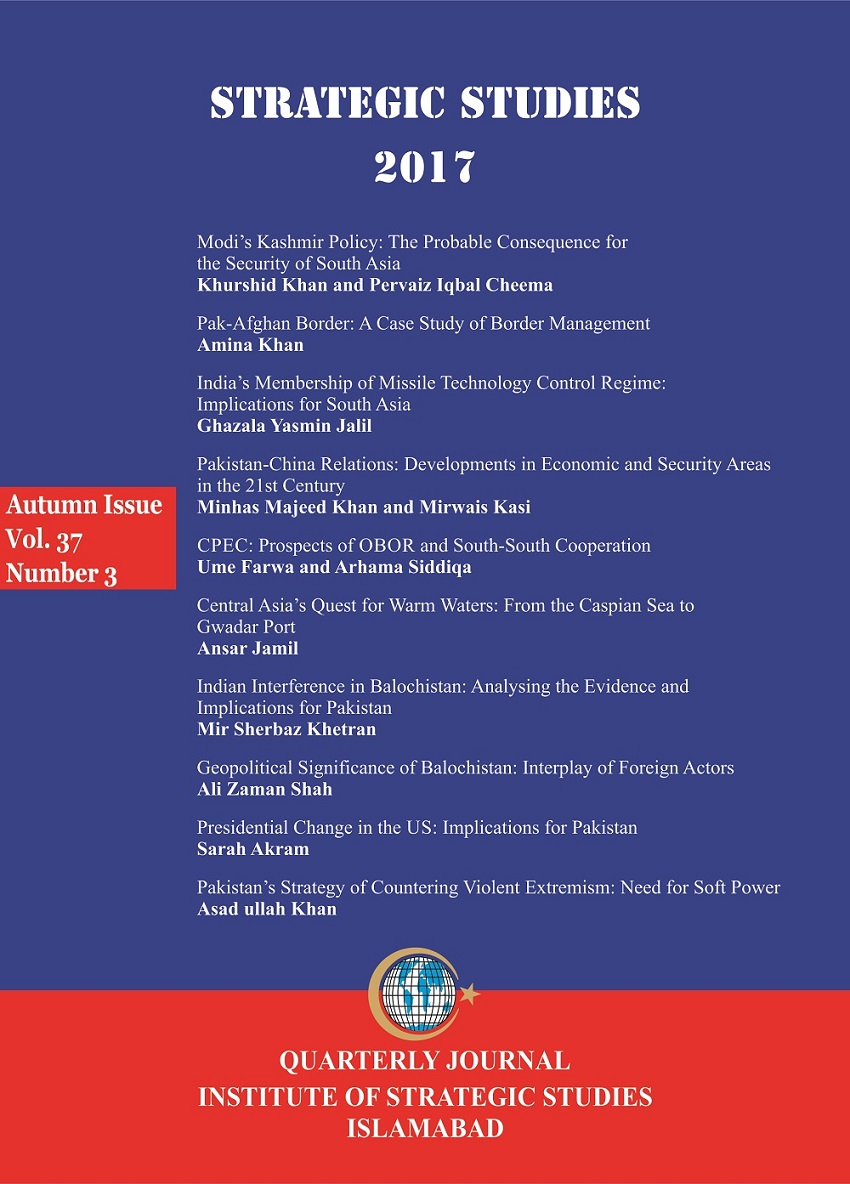India’s Membership of Missile Technology Control Regime: Implications for South Asia
Keywords:
Missile Technology Control Regime, High Missile Technology, Space Programme, Unmanned Aerial Vehicles, Arms Race, Balance of Power, Nuclear Suppliers GroupAbstract
India’s membership of the Missile Technology Control Regime (MTCR) affects strategic balance in South Asia particularly, Pakistan. India’s membership of the group would aid India’s missile and space programmes, providing it access to technologies and missile systems hitherto unavailable to it. This may include Unmanned Aerial Vehicles (UAV) like Global Hawk and Predator, which the US has employed for reconnaissance and counter-terrorism along Pakistan Afghanistan border to strike targets within Pakistan’s territory, violating its sovereignty. India’s acquisition of these systems will pose a threat to Pakistan. The MTCR membership would accelerate India’s missile programme, thereby, exacerbating an arms race in South Asia. It would also further tilt the regional balance of power in India’s favour. However, the bigger threat is the quest to win India a place at the high tables in the world and to build it up as a regional and global power. After looking into the pros and cons of Pakistan joining the MTCR, this article concludes that presently it is not in Pakistan’s favour to join the group since it may help the US and the West to hinder or curtail Pakistan’s missile programme.

Published
How to Cite
Issue
Section

This work is licensed under a Creative Commons Attribution-NonCommercial 4.0 International License.



